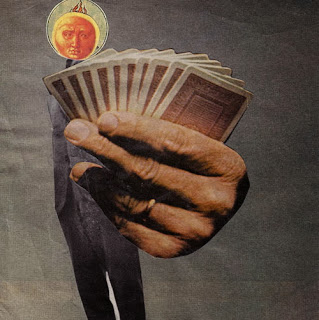I
pity your oldself I was used to. Now a younger's there. Try not to
part. Be happy dear ones! May I be wrong! For she'll be sweet for you
as I was sweet when I came down out of me mother.
My great blue bedroom, the air so quiet, scarce a cloud.
In peace and silence.
I could have stayed up there for always only.
It's something fails us.
First we feel.
Than we fall.
And let her rain now if she likes. Gently or strongly as she likes. Anyway let her rain for my time is come.
I done me best when I was let. Thinking always if I go all goes. A
hundred cares, a tithe of troubles and is there one who understands me?
One in a thousand of years of the nights? All me life I have been
lived among them but now they are becoming loathed to me. And I am
loathing their little warm tricks. And loathing their mean cosy turns.
And all the greedy gushes out through their small souls. And all the
lazy leaks down over their brash bodies. How small it's all!
And
me letting on to myself always. And lilting on all the time. I
thought you were all glittering with the noblest carriage.
You're
only a bumpkin. I thought you the great in all things, in guilt and in
glory. You're but a puny. Home! My people were not their sort out
beyond there so far as I can. For all the bold and bad and bleary they
are blamed, the seahags.
No!
Nor for all our wild dances in all their wild din. I can seen myself
among them, allaniuvia pulchrabelled. How she was handsome, the wild
Amazia, when she would seize to my other breast! And what is she weird,
haughty Niluna, that she will snatch from my ownest hair! For 'tis
they are the storms. Ho hang! Hang ho! And the clash of our cries
till we spring to be free. Auravoles, they says, never heed of your
name!
But I'm loathing them that's here and all I loathe. Loonely in me loneness. For all their faults. I am passing out. O bitter ending! I'll slip away before they're up. They'll never see. Nor know. Nor miss me.
And
it's old and old it's sad and old it's sad and weary I go back to you,
my cold father, my cold mad father, my cold mad feary father, till the
near sight of the mere size of him, the moyles and moyles of it,
moananoaning, makes me seasilt saltsick
and I rush, my only, into your arms.
I see them rising! Save me from those terrible prongs! Two more. Onetwo moremens more. So. Avelaval. My leaves have drifted from me. All.
But one clings still.
I'll bear it on me. To remind me of. Lff! So soft this morning ours. Yes.
Carry me along, taddy, like you done through the toy fair.
If I seen him bearing down on me now under whitespread wings like he'd come from Arkangels, I sink I'd die down over his feet, humbly dumbly, only to wash-up. Yes, did. There's where. First. We pass through grass behush the bush to. Whish! A gull. Gulls. Far calls. Coming, far! End here. Us then. Finn, again! Take.
Bussoftlhee, mememormee!
Till thousendsthee.
Lps.
The keys to. Given! A way a lone a last a loved a long the
James Joyce, Finnegans Wake




















































